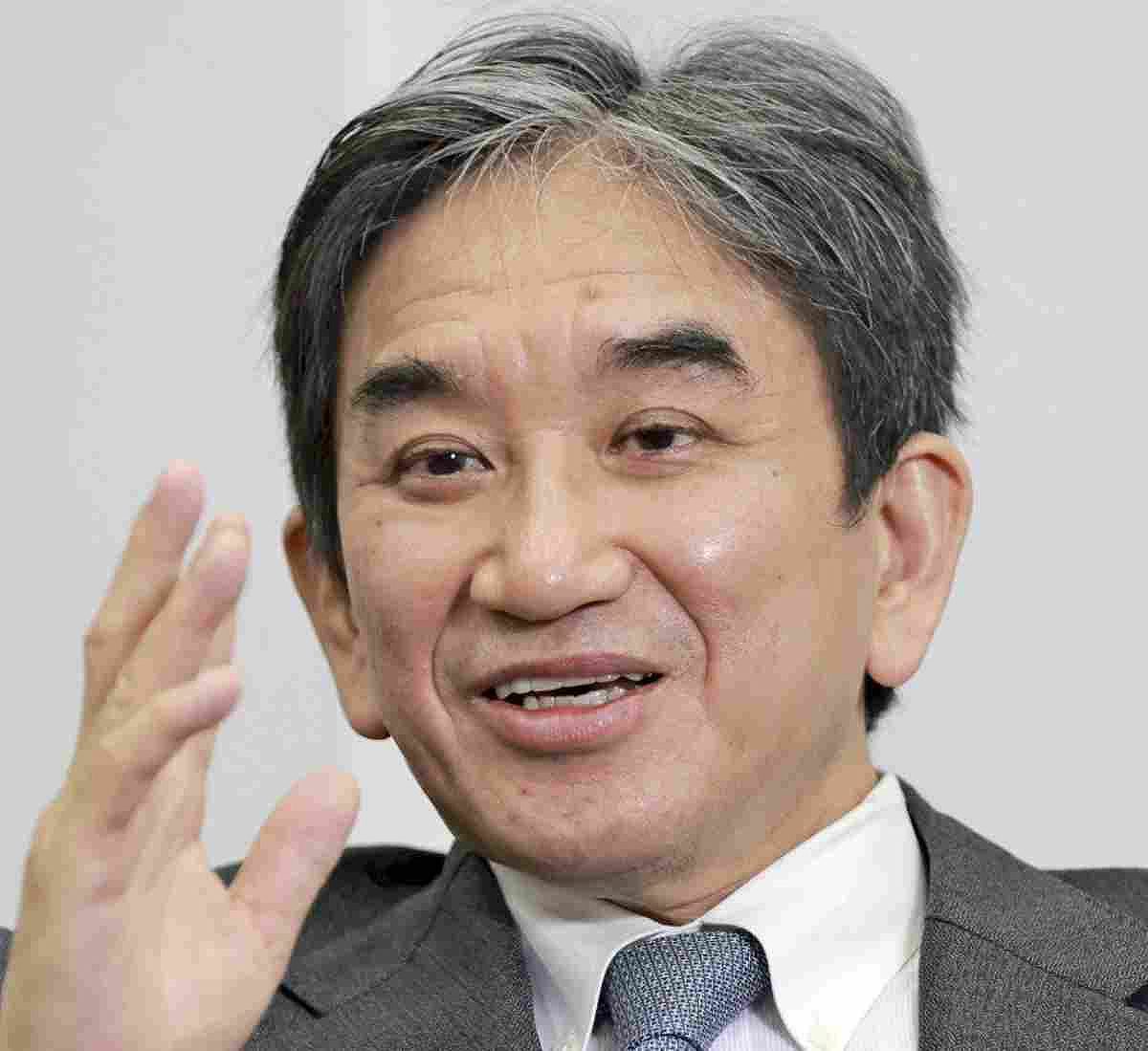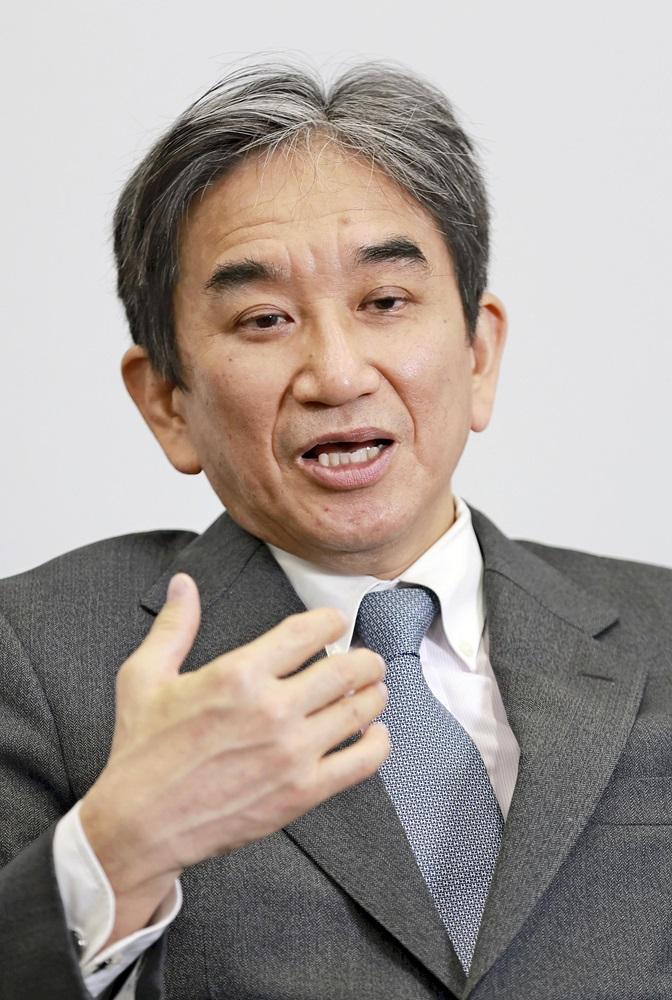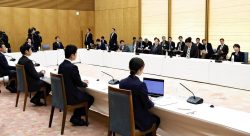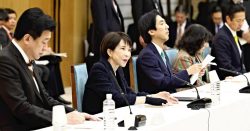Former Japan Ambassador Evaluates Relations with China; Says Xi Jinping Has Shifted from Collective Govt to One-Man Rule

Former Japanese Ambassador to China Hideo Tarumi speaks in an interview Wednesday.
21:19 JST, December 29, 2023
Former Japanese Ambassador to China Hideo Tarumi said Japan and China are now ready to resolve specific issues between the two countries as Prime Minister Fumio Kishida and Chinese President Xi Jinping confirmed their intention to promote strategic and mutually beneficial ties between the two nations in November.
In an interview with The Yomiuri Shimbun on Wednesday, Tarumi also stressed the importance of more meetings between Kishida and Xi, who has concentrated power in his own hands.
Tarumi served as the ambassador from September 2020 to October this year.
New concept
In the summer of 2006, just before the inauguration of Prime Minister Shinzo Abe’s first administration, Tarumi was instructed by then Vice Foreign Minister Shotaro Yachi to consider a “new concept for Japan-China relations.”
Tarumi, who was then a division director in the Foreign Ministry, thought about it for about a week and suggested that the keyword “strategy” be used. It developed into the idea of a “mutually beneficial relationship based on common strategic interests” following internal discussions, and was approved by Abe — who at the time was chief cabinet secretary.
Since China was wary of Abe’s “open conservatism” at that time, Tarumi recalled, “We needed words that would turn China around.”
While Japan was emphasizing the resolution of specific issues, China was placing importance on the positioning of bilateral relations. With the use of the word “strategy,” which Japan was then using only for its relations with the United States, China is believed to have become convinced of Japan’s seriousness.
“Mutually beneficial relations based on common strategic interests” has been mentioned less often in recent years, but during the November summit, Japan and China confirmed that they would promote the ties.
“Promoting such a relationship itself is not the objective. We cannot gain public support and understanding without resolving specific issues,” Tarumi said.
Among the issues is the detention of a Japanese national, an employee of Astellas Pharma Inc., for allegedly violating China’s counterespionage law in March.
“We must never let this issue fade. It has become an obstacle to economic and human exchanges,” Tarumi stressed. He expressed concern that the boundary between normal business activities and legally prohibited acts is becoming blurred in China.
National security
Tarumi said that the Communist regime’s most important national goal had been economic growth, but that changed to national stability under the Xi administration. It was apparently because riots and demonstrations occurred frequently during the latter years of the previous administration led by President Hu Jintao, when disparities widened as the economy grew, he said.
That also was the reason that the Xi administration strengthened surveillance within the country.
Tarumi said that during his service in Beijing, Chinese public security authorities pressured Chinese officials many times to refrain from attending events they were invited to at the Japanese Embassy in China. “It used to not be as bad as that,” he said.
Summit meeting needed
Tarumi also expressed his belief that China’s system of one-party rule has changed into a “system of one-man rule” under the Xi administration. Tarumi said that, for instance, it became necessary for six members of the Chinese Communist Party’s supreme leadership — meaning all of them except Xi — to get permission from Xi’s office to use government planes. Tarumi sees that they now have a relationship of “one boss and six subordinates,” a change from the collective leadership of the past.
Tarumi said, “The fewer people there are who make [policy] decisions, the weaker the function of examining issues becomes. Possibilities are high that this will lead to a variety of risks.”
He stressed, however, that Japan should aim to realize Japan-China summit talks more often to resolve specific issues when leaders of other countries, including the United States and France, are focusing on holding summit meetings or building personal relationships with Xi. “Whether you like it or not, Japan must always consider how to respond to Xi as long as the country has a system controlled by one man,” he said.
Top Articles in Politics
-

Japan PM Takaichi’s Cabinet Resigns en Masse
-

Sanae Takaichi Elected Prime Minister of Japan; Keeps All Cabinet Appointees from Previous Term
-

Japan’s Govt to Submit Road Map for Growth Strategy in March, PM Takaichi to Announce in Upcoming Policy Speech
-

LDP Wins Historic Landslide Victory
-

LDP Wins Landslide Victory, Secures Single-party Majority; Ruling Coalition with JIP Poised to Secure Over 300 seats (UPDATE 1)
JN ACCESS RANKING
-

Producer Behind Pop Group XG Arrested for Cocaine Possession
-

Japan PM Takaichi’s Cabinet Resigns en Masse
-

Man Infected with Measles Reportedly Dined at Restaurant in Tokyo Station
-

Israeli Ambassador to Japan Speaks about Japan’s Role in the Reconstruction of Gaza
-

Videos Plagiarized, Reposted with False Subtitles Claiming ‘Ryukyu Belongs to China’; Anti-China False Information Also Posted in Japan



























